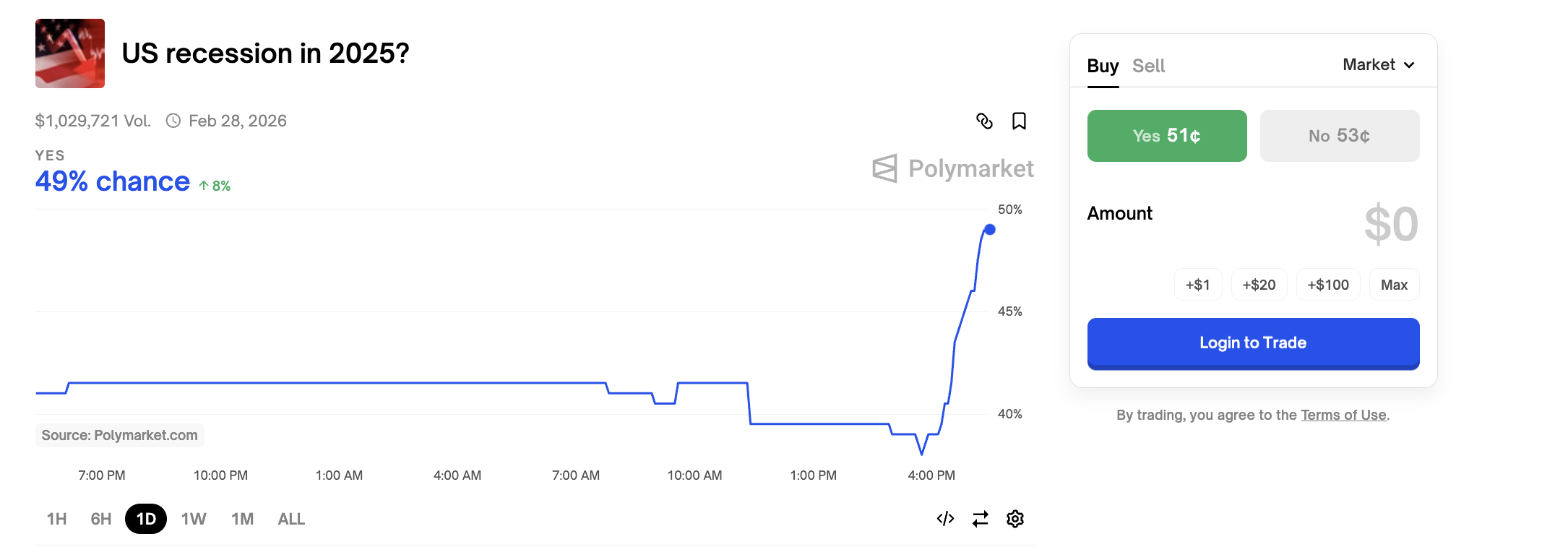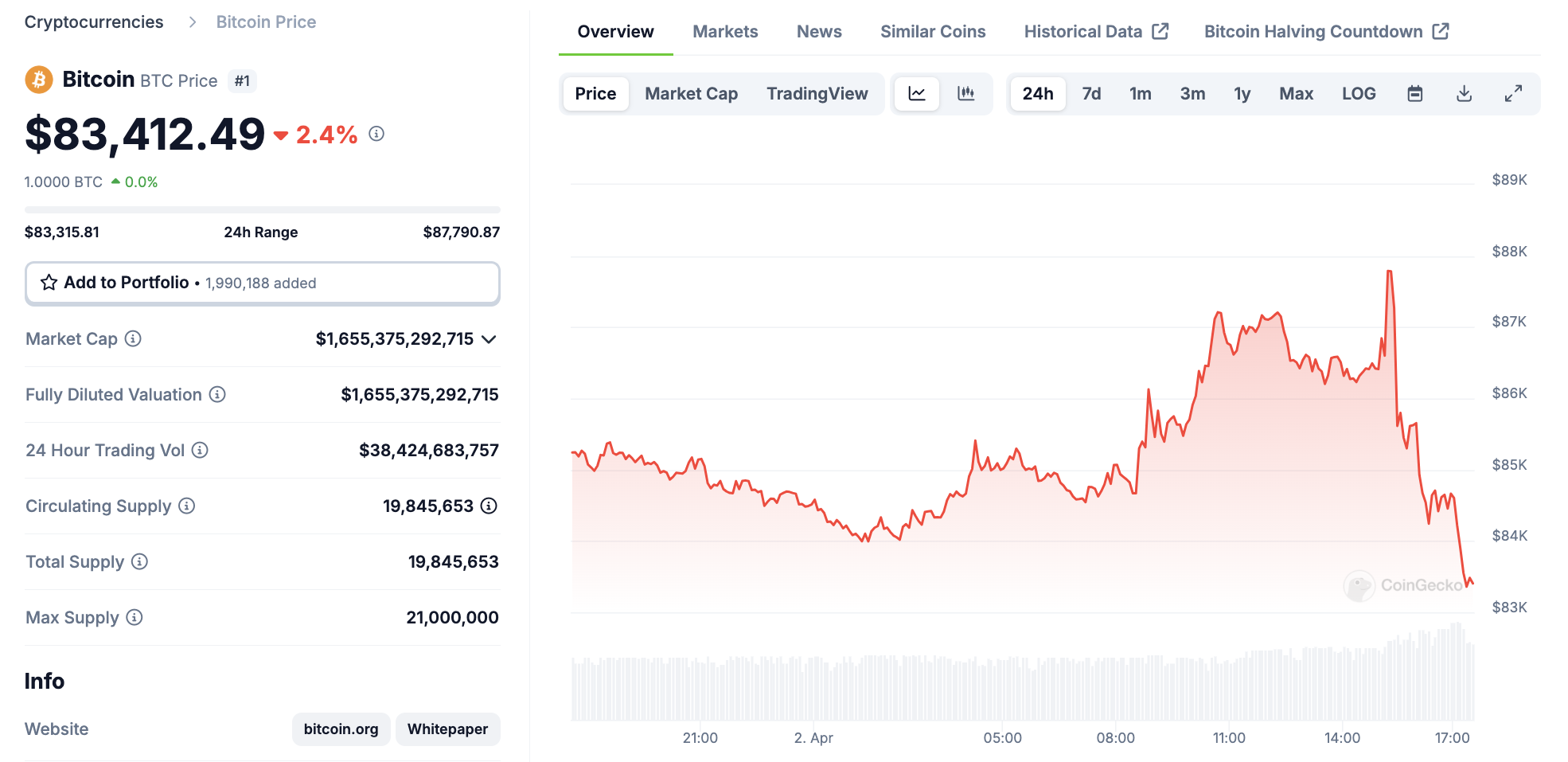Polymarket sees the possibility of a US recession at almost 50% this year. This is because Trump's Liberation Day tariffs exceeded expectations. Both cryptocurrency and traditional markets are plummeting, and the future looks uncertain.
Even if Trump modifies these tariffs, the plan has already damaged the United States' reputation. Trade partners are forming new agreements without the US, and there were many discrepancies in tariff calculations.
Polymarket's Recession Prediction
Polymarket is an online prediction market that provides probabilities on various topics. It gained fame last year when users successfully predicted the presidential election. Today, market anxiety is reflected on this platform, with Polymarket's US recession probability approaching 50%.

The market was already filled with bearish sentiment and recession concerns, but specific events have exacerbated this. Today is Trump's Liberation Day, announcing tariffs on all countries worldwide. This plan includes at least 10% tariffs on all allies and trading partners and has exceeded the most pessimistic expectations.
Additionally, some discrepancies in the tariffs' formalization further increased market uncertainty. For example, the administrative order claims that uninhabited islands are imposing tariffs on the US, and one social media user pointed out that calculations were directly copied from Wikipedia charts.
The cryptocurrency market had widely anticipated these tariffs, so some losses were reflected this morning. Unfortunately, the industry expected some frustrations but was not prepared for these high tariff levels. Polymarket's recession probability is rapidly increasing, and BTC price has plummeted.

Even if the tariffs are withdrawn, Polymarket's recession prediction could still be realized. The threat of tariffs is already reshaping world trade in several key ways.
For example, long-time competitors China, Japan, and South Korea have agreed to a joint response to these tariffs. If the world market sees the US as untrustworthy, they may focus on new agreements.





